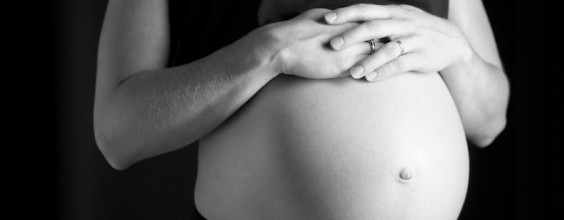
Domestic violence can affect children even before they’re born, reveals new research by Michigan State University scientists.
The study is the first to link abuse of pregnant women with emotional and behavioral trauma symptoms in their children within the first year of life. Symptoms observed among children included nightmares, startling easily, being bothered by loud noises and bright lights, avoiding physical contact and having trouble experiencing enjoyment.
“For clinicians and mothers, knowing that the prenatal experience of their domestic violence can directly harm their babies may be a powerful motivator to help moms get out of these abusive situations,” said study co-author Dr. Alytia Levendosky, a psychology professor at Michigan State University.
The study of 182 mothers ages 18-34 found a surprisingly strong relationship between a mother’s prenatal abuse by a male partner and postnatal trauma symptoms in her child. The researchers examined the women’s parenting styles and also took into account risk factors such as drug use and other negative life events, marital status, age and income.
Dr. Levendosky explains that prenatal abuse could cause changes in the mother’s stress response systems, increasing her levels of the hormone cortisol, which in turn could increase cortisol levels in the fetus.
“Cortisol is a neurotoxic, so it has damaging effects on the brain when elevated to excessive levels,” she says. “That might explain the emotional problems for the baby after birth.”
According to the Centers for Disease Control and Prevention, domestic abuse affects an estimated 324,000 pregnant women in the U.S. each year, making it the most common health problem experienced during pregnancy. However, the CDC notes that “this figure likely underestimates the true magnitude of the problem because we know that most incidents are never reported.”
Past studies have shown that pregnant women who are victims of abuse have a higher risk of pregnancy complications and adverse birth outcomes including low-birthweight, preterm birth, and miscarriage. Research also demonstrates the devastating effects of witnessing domestic violence during childhood, which can lead to mental health and behavioral problems, and even long-term physiological damage.
Moreover, children exposed to domestic violence are at very high risk of becoming victims of child abuse and, later in life, of being involved in abusive relationships. That’s why experts say it’s critical for doctors and other health professionals, particularly those who work with pregnant and childbearing-age women, to recognize the signs of domestic violence so they approach the issue in a safe setting.
Dr. Levendosky, a clinical psychologist for nearly 20 years, has counseled many domestic violence survivors who didn’t believe the abuse would affect their child until the child was old enough to understand what was going on.
But, she said, “these findings send a strong message that the violence is affecting the baby even before the baby is born.”
